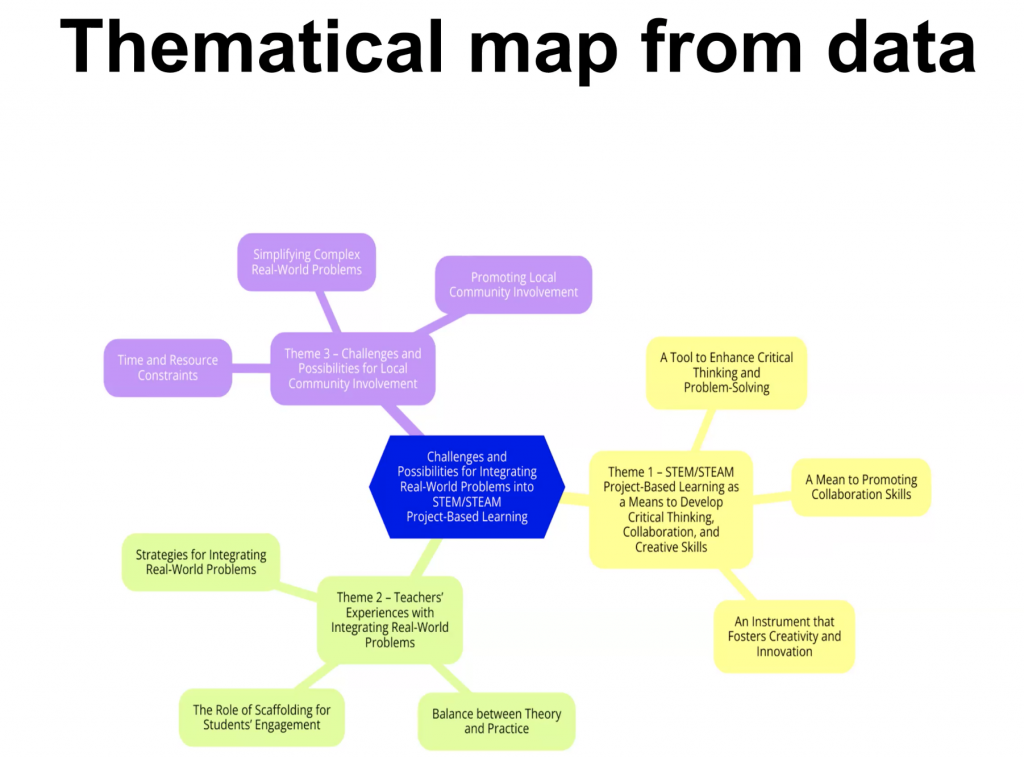Summary of SyMETRI Meeting: October 29th, 2024 by Stephanie La France
Presenter/Guest Speaker: Tony Domina from Department of Curriculum and Pedagogy, University of British Columbia
Date: October 29th, 2024
Host: Dr. Cynthia Nicol
At the SyMETRI meeting on October 29th, 2024, Tony Domina shared about his recently completed Capstone project on Project Based Learning (PBL) in/through STEM education. Tony interviewed various STEM subject teachers to find out about their experiences with and perspectives on PBL in hopes to gain insight into how we might support future practice and refine ideas for projects at his school. He engaged with thematic analysis coming to three major themes. The first theme in his research indicated that teachers felt STEM PBL developed key skills like critical thinking and collaboration through group work, and that the open-ended nature of the projects fostered creativity. The second theme showed that, for these projects to be considered successful, there must be scaffolding of engagement for students, a balance between theory and practice, and that projects align with global issues of relevance. Finally, in his analysis, the third theme that emerged was around challenges and sustaining practice of PBL. He noted that there were three factors: lack of time and resources, simplifying complex problems, and building and sustaining partnerships with community.
In considering the future of PBL in STEM education, Tony suggests interdepartmental collaboration (and even beyond) through various online platforms like Google Classroom (as an example). He considers various avenues for how to get communities of practice going and sustained within his school and across his district. He notes that a stronger community of practice would lead to better alignment between assessment and instruction through the projects (rather than as a separate enrichment activity). This would enable students to progress through the project while teachers could more efficiently support their trajectory through curriculum. He emphasized that this collaboration would help students learn concepts in the curriculum and get excited about learning by sharing their great ideas with the community. In fact, John Larmer talks about PBL to motivate students because students start connecting projects with real life challenges and helps them feel like they are making a difference; the project becomes more authentic, and so the activity associated with the project becomes more authentic.
Here are some slides from Tony’s presentation:
We are excited to see what future projects Tony takes up as it relates to his research interests like connecting with a broader community, engaging with longitudinal studies on STEM-based projects fitting the PBL frameworks, and studies that include student feedback. Tony is also excited by the potential for mixed methods studies and the use of quantitative data to complement qualitative. He feels that future studies are critical to support teachers sense of self-efficacy in implementing PBL in meaningful and authentic ways that promote student-centered decision making. “A lot of teachers do amazing things, it’s just that we so often do it individually, so I want to encourage more collaboration to share ideas.” We couldn’t agree more, Tony!


